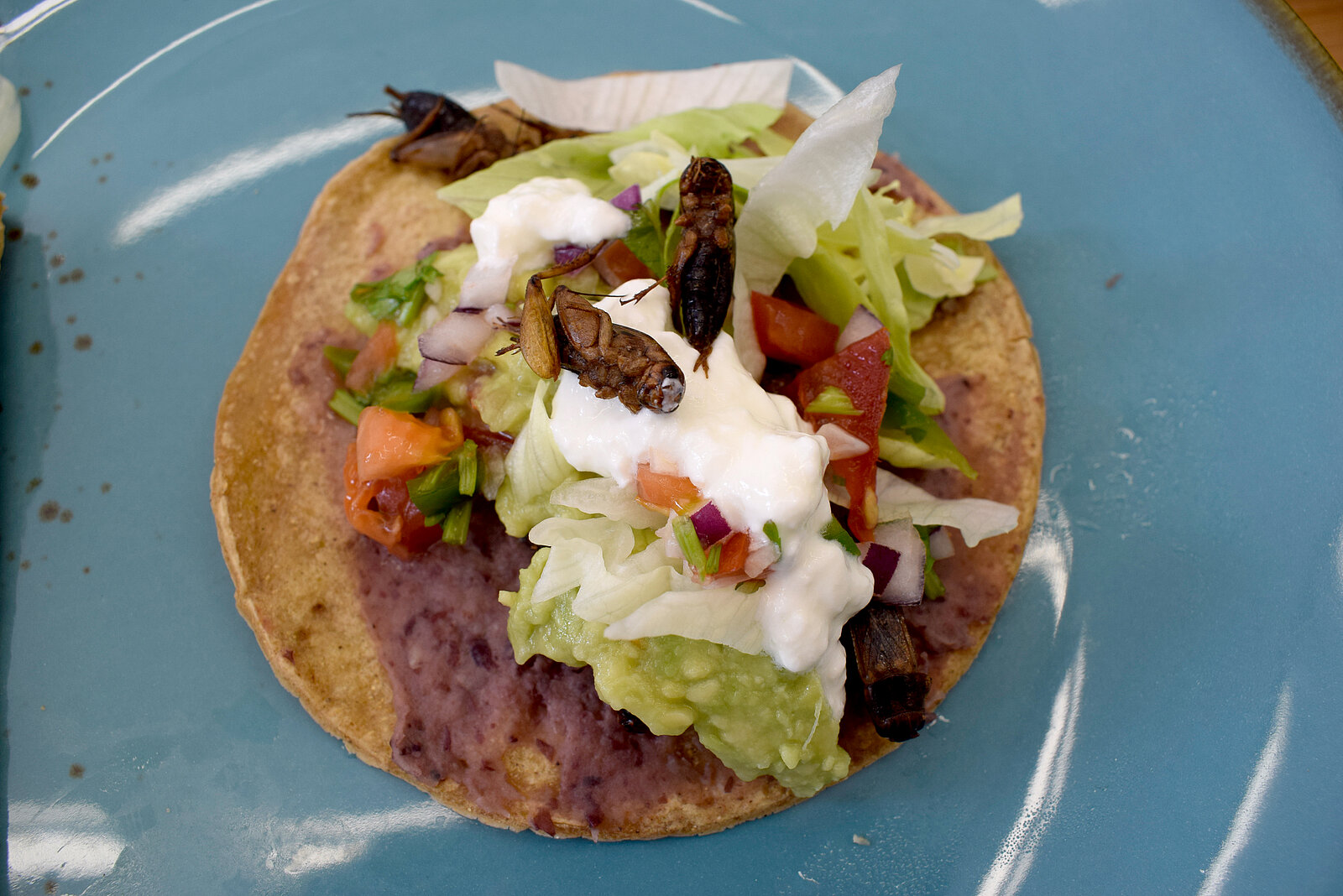Nutrition of the Future: Insects and Alternative Protein Sources - a Solution for Coming Social Challenges?
According to estimates by the Food and Agriculture Organization of the United Nations, FAO, nearly 690 million people are starving. That is 8.9 percent of the world population. The growing number of the world's population and the worsening climate crisis are likely to make this situation worse. The fight against world hunger will therefore remain an important field of research in the coming years. According to the FAO, the global demand for meat will almost double by the year 2050 due to the ever increasing population, which means that conventional agriculture will hardly be able to meet the demand. The need to ensure a basic supply of sufficient protein for the population makes it important to consider alternative sources. As part of this project, scientists from the Institute for Food Quality and Safety (LMQS) will enter into the discourse with various interest groups in order to inquire about the acceptance of potential alternatives to conventional protein sources, as this is of crucial importance for later use as food. The focus here will be on insects, as their consumption is likely to be more of a challenge than that of vegetable proteins. In addition, the institute has been researching the consumption and acceptance of food insects (so-called entomophagy) for a long time.
Commercially bred food insects generally have better ecological balances than conventional livestock in meat production, as they can use feed better on average and the breeding proceeds under better ecological conditions. As a result, they have great potential to be used as an alternative to conventional protein sources. The consumption of food insects is currently still low in Europe, as consumers presumably have reservations and these products are in a higher price range than conventional foods when shopping.
The aim of the project is to better understand and classify consumer wishes and expectations as well as attitudes towards new types of food.
On the one hand, a questionnaire should be used to ascertain a status quo regarding the acceptance of alternative food sources in Germany and, on the other hand, an important future discourse should be promoted under scientific supervision in order to bring interested consumers closer to this topic and to answer any questions that arise directly.
For this purpose, information material is continuously made available as part of the project here on the LMQS homepage of the University of Veterinary Medicine Hannover.
Dates for information events for a broad social discourse are announced here.
The project is funded by the Lower Saxony Ministry of Science and Culture and the Volkswagen Foundation as part of the “Future Discourses” call for proposals (funding number 11-76251-21-1 / 2).
Do you fancy insects? Here you will find recipes to try out
https://www.tiho-hannover.de/inzukunft/rezept-insektenchips



